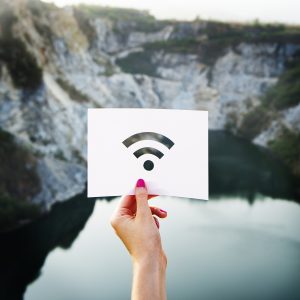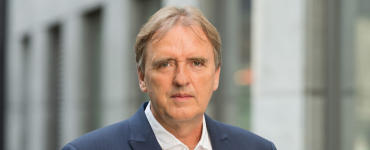- eco participates in consultation on the 3rd Amendment of the German Telemedia Act
- Website blocking without judicial decisions causes legal uncertainty for Wi-Fi operators
- eco survey: Wi-Fi situation in Germany poor; Germans use hotspots abroad much more frequently
With the abolition of Wi-Fi third party liability in 2017, the German federal government wanted to remove a central obstacle to the provision of public Wi-Fi in Germany and liberate Wi-Fi operators from their liability risk. In order to accommodate rights holders, however, it introduced the option for them to demand that network operators block services (aka website blocking). Now the German Federal Ministry for Economic Affairs and Energy (BMWi) is evaluating the law and, to this end, launched a consultation procedure, in which the eco Association participated by means of a position statement.
Website blocking without judicial decisions causes legal uncertainty for Wi-Fi operators
While eco has always supported the Wi-Fi Act in terms of its abolition of third party liability, it has been resolute in its criticism of the Act’s implementation, including website blocking: “The law causes legal uncertainty for Wi-Fi operators through its introduction of website blocking without judicial decisions. Hurdles for Wi-Fi networks should actually be removed, but instead of finding a genuine solution, the legislator shifted the problem to another level. Without question, this situation must now be rectified,” comments eco Chair of the Board, Oliver J. Süme.
eco survey: Wi-Fi situation in Germany poor; Germans use hotspots abroad much more often
The consequences of how the Act is playing out in practice are shown by a representative survey conducted by eco – Association of the Internet Industry. Only 7.9 percent of survey respondents stated that they believe that the availability of public Wi-Fi spots has definitely improved in the last two years. 44.9 percent of the respondents also stated that they use public Wi-Fi hotspots abroad more frequently or somewhat more frequently than in Germany.
“Website blocking is a real problem for hotspot operators and creates significant uncertainty. In Germany, there are currently far too few public hotspots due to fear of legal notices, which inevitably downgrades us to a losing position in international comparison. The German Federal Ministry of Economic Affairs should seize the opportunity and revise the innovation-inhibiting Wi-Fi Act in order to finally guarantee the urgently needed legal security for German hotspot operators,” urges Süme.




